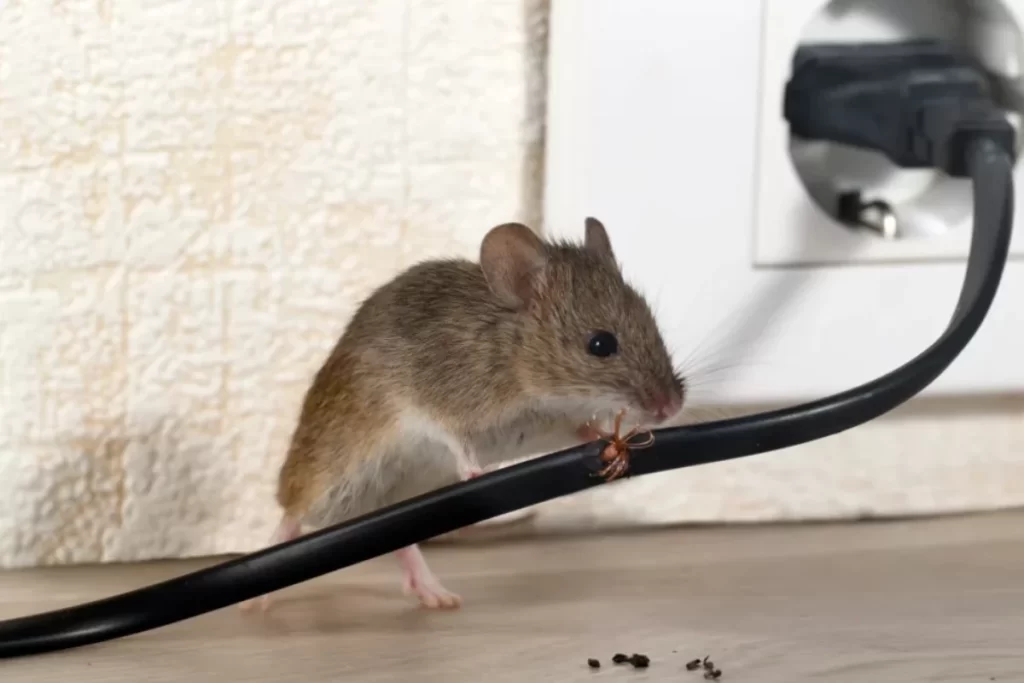Hearing noises in your attic at night can be unsettling, especially if you’re not sure what’s causing them. The scurrying, scratching, or even thumping sounds might make you think of all sorts of possibilities, with rats being one of the most common culprits. But how can you tell if it’s rats, or if something else is causing the disturbance? In this blog post, we’ll explore how to determine whether the noises in your attic are coming from rats, what to do about it, and how to prevent future infestations.
Why Do Rats Visit Attics?
Rats are opportunistic creatures that seek shelter, warmth, and food. During the colder months, attics become prime real estate for rats because they offer a warm, secluded space for nesting. The attic is also away from human activity, allowing rats to move around freely and without disturbance.
Rats are nocturnal, meaning they’re most active during the night when they come out to forage for food or move around their nest. This is why many people report hearing noises, especially late at night or in the early morning hours.
Rats, in particular, tend to make a variety of sounds as they move around, chew, or engage in other behaviors. Their chewing and scratching noises can be loud enough to be heard through the ceiling, walls, or floors, especially if the sound is amplified by the quiet of the night.
Other Noises That Could Be Coming From Your Attic
While rats are a common reason for hearing noises in your attic, they aren’t the only culprits. Other animals, such as squirrels, bats, and even birds, may also make their way into your attic. It’s important to try and determine exactly what you’re hearing in order to effectively address the problem. Here’s a quick guide to some common nocturnal attic invaders and their typical sounds:
- Rats and Mice: The sounds rats make are often sharp, scratching, or scurrying noises. Rats may also make soft squeaks when communicating with each other. You may hear them moving along the beams or gnawing at insulation, wood, or wires. These sounds are typically loud and quick, and can sometimes sound like something moving rapidly across the ceiling or within the walls.
- Squirrels: Squirrels are also known to invade attics in search of warmth and shelter. The noises they make are typically described as scurrying, thumping, or scrambling sounds. They may also make gnawing noises while chewing on wood or insulation. Since squirrels are often more active during dawn and dusk, their activity is more likely to be heard during the twilight hours rather than late at night.
- Bats: Bats are often quieter than rats and squirrels, but they can still make sounds if they’re roosting in your attic. You might hear them flapping their wings, especially if they’re disturbed. Bats are usually active at night, so you’re most likely to hear them during the late evening or early morning hours.
- Birds: Birds, especially pigeons or sparrows, may find their way into your attic through small holes or vents. Their sounds typically consist of chirping, cooing, or scratching. Birds are usually most active during the daytime, but you might hear them roosting at night, especially if they’ve found a quiet, undisturbed spot in your attic.
How to Tell if the Noises Are Coming From Rats
Now that we know some of the possible sources of attic noises, how can you determine if rats are the problem? Here are a few key signs that might indicate rats are the culprits:
- Scratching and Gnawing Noises: Rats tend to chew constantly to keep their teeth from growing too long. If you hear continuous gnawing sounds, particularly around beams, wires, or insulation, it’s a strong indication of a rat infestation. Scratching or scurrying noises are also common as rats move around in search of food or water.
- Noises in the Evening or Early Morning: Rats are primarily nocturnal creatures, so the noises you’re hearing are likely to be at night. If you hear activity late at night or in the early morning hours, rats are probably to blame.
- Presence of Droppings or Gnaw Marks: If you can access your attic or the areas where the noise seems to be coming from, check for signs of rats. Look for rat droppings, which are small, dark, and cylindrical. You may also find gnaw marks on wood, insulation, or electrical wires, which is a clear indication that rats are living in your attic.
- Strong Odor: A rat infestation is often accompanied by a strong, musky odor. The smell of urine, feces, or dead rats may become noticeable if the rats have been living in your attic for a while. If you notice a foul smell along with the noises, it’s likely that rats are the cause.
What to Do if You Hear Noises in Your Attic
If you’ve determined that rats are the cause of the noises in your attic, it’s essential to take action right away. Here’s what you should do:
- Inspect the Attic: Carefully inspect your attic for signs of rats, including droppings, gnaw marks, and nests. Pay close attention to areas around the roof, vents, and any gaps or cracks that could be used as entry points.
- Seal Entry Points: Once you’ve located where the rats are entering, seal off any gaps or holes around the roof, vents, pipes, or windows. Rats can squeeze through even the tiniest openings, so make sure all potential entry points are sealed with steel wool, caulk, or hardware cloth.
- Set Traps: Trapping is one of the most effective ways to handle a rat infestation. Snap traps, live traps, and bait stations can all be used to capture and remove rats from your attic. Be sure to place traps along walls, near droppings, or in areas where you’ve heard the most activity.
- Call a Professional: If the infestation is large or you’re unsure how to safely handle the problem, consider calling a professional pest control service. They can conduct a thorough inspection, eliminate the rats, and help prevent future infestations.
How to Prevent Future Noises and Infestations
After addressing the current infestation, it’s important to take steps to prevent rats from returning. Here are some key prevention tips:
- Regular Inspections: Periodically check your attic for any signs of rodent activity. Catching an infestation early can prevent it from becoming a bigger problem.
- Maintain Cleanliness: Keep your attic clean and free of food sources, such as stored food items or pet food. This will make it less attractive to rats looking for a place to nest.
- Trim Trees and Shrubs: Ensure that tree branches or bushes near your roofline are trimmed, as they can serve as a bridge for rats to gain access to your attic.
Conclusion
Hearing noises in your attic at night can be unsettling, but by understanding the causes and signs of a rat infestation, you can take the appropriate steps to address the problem. If you’re unsure about the source of the noise or how to handle the situation, don’t hesitate to reach out to a professional pest control service. With the right action and preventive measures, you can keep your attic—and your home—free from the risks and nuisances of a rat infestation. We recommend pest control in new york.

